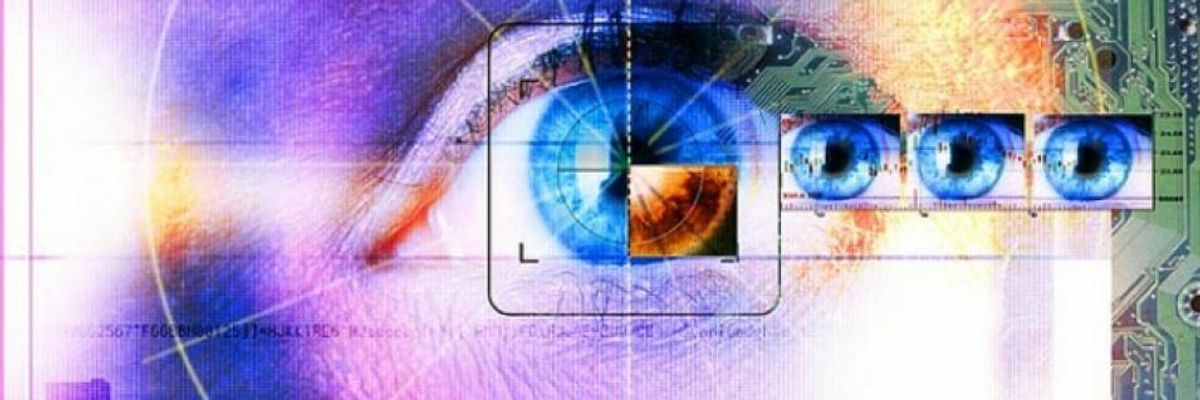Digital privacy advocates praised the Oakland City Council in California for unanimously approving a local ordinance that bans public agencies, including police, from "acquiring, obtaining, retaining, requesting, or accessing" facial recognition technology--following the lead of San Francisco and Somerville, Massachusetts.
"These decisions should be made as Somerville, San Francisco, and now Oakland just made: by the public, including the communities that will be most impacted, through an affirmative vote by their elected representatives."
--Matt Cagle, ACLU of Northern California
On the heels of Oakland's Tuesday night vote--which will be followed by a second, procedural vote in mid-September--the Public Safety Committee of the Berkeley City Council was slated to meet Wednesday to finalize a similar proposal.
In the absence of federal regulations, local policymakers and privacy advocates have been working together to craft and enact bans on local government using facial recognition technology in their communities. Some of the measures are part of the ACLU's Community Control Over Police Surveillance (CCOPS) effort, launched in 2016.
Matt Cagle, technology and civil liberties attorney with the ACLU of Northern California, welcomed the news out of Oakland in a statement Wednesday.
"Decisions about whether we want to hand the government the power to identify who attends protests, political rallies, church, or AA meetings should not be made in the secret backroom of a police station, lobbied by corporate executives that market this technology," said Cagle. "These decisions should be made as Somerville, San Francisco, and now Oakland just made: by the public, including the communities that will be most impacted, through an affirmative vote by their elected representatives."
VICEreported Wednesday on the motivation behind Oakland's ordinance:
According to a public memo by Rebecca Kaplan, Oakland City Council president, the ban was instituted on the basis that facial recognition is often inaccurate, lacks established ethical standards, is invasive in nature, and has a high potential for government abuse.
"Face recognition technology runs the risk of making Oakland residents less safe as the misidentification of individuals could lead to the misuse of force, false incarceration, and minority-based persecution," Kaplan said.
Fight for the Future--which launched a campaign earlier this month demanding a nationwide moratorium on facial recognition surveillance--took to Twitter Wednesday to celebrate Oakland's ban and urge residents of other cities to pressure their local officials to pursue similar measures.
Evan Greer, deputy director at Fight for the Future, specifically addressed Berkeley's possible ban in a statement Tuesday.
"The proposal on the table in Berkeley is clear, direct, and effective," she said. "It's a critical line of defense against invasive surveillance. But police are pushing carve-outs for all different kinds of--you guessed it--invasive surveillance. They're trying to make it a self-negating law so they can monitor and control the population with impunity."
"You don't let Big Brother negotiate how much oppressive tech he gets. The answer is: he gets none."
--Evan Greer, Fight for the Future
"The people of Berkeley know better," Greer added. "They support a ban, and they won't allow the council to pass an empty shell of a law that doesn't do what it's intended to do. You don't let Big Brother negotiate how much oppressive tech he gets. The answer is: he gets none."
The fight for local ordinances in the pair of California cities comes as the Democratically-controlled U.S. House on Tuesday passed an amendment (pdf) to the Intelligence Authorization Act for Fiscal Year 2020 (H.R. 3494) that requires the Director of National Intelligence to report the U.S. government's use of facial recognition technology, detailing its accuracy as well as efforts to protect and potential consequences for human and civil rights.
"It is encouraging that Congress has united across party lines to recognize that this surveillance technology presents an unprecedented threat to our most fundamental democratic values," ACLU senior legislative counsel Neema Singh Guliani said after the vote. "The amendment is a good first step in bringing some much-needed transparency to the government's growing and reckless use of face surveillance technology."
Kade Crockford, director of the ACLU of Massachusetts Technology for Liberty Program, worked on Somerville's ordinance. Responding to House lawmakers' approval of the amendment, Crockford tweeted Wednesday: "Reports are good; bans are better."

